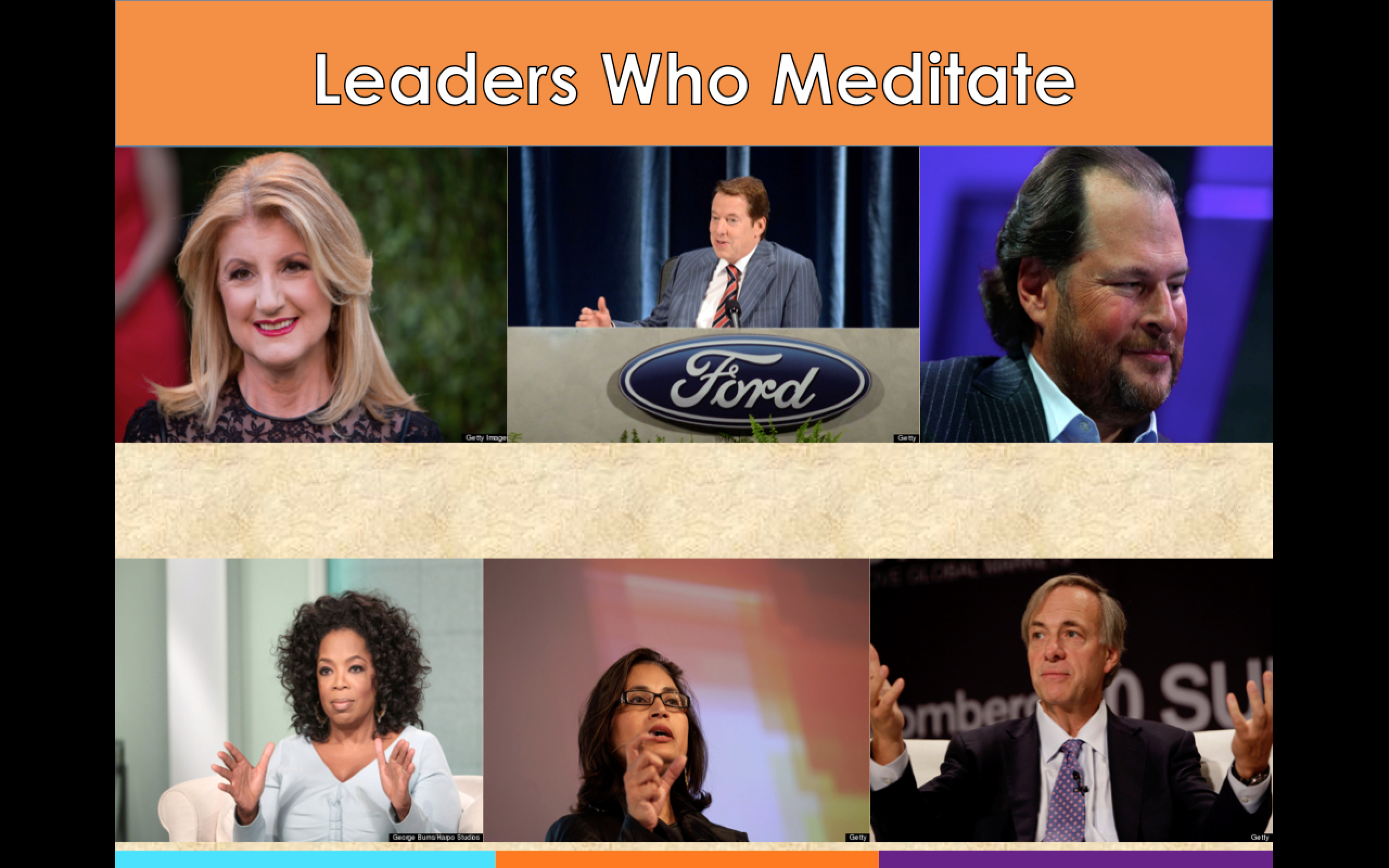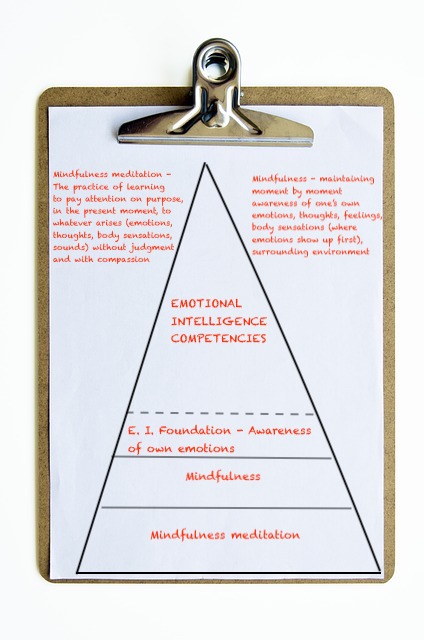More and more leaders are discovering mindfulness meditation builds emotional intelligence.
What do they know that other leaders don’t?

How Mindfulness Meditation Builds Emotional Intelligence
Research indicates that emotional intelligence, more than any other factor, differentiates great leaders from the rest of the pack. But how do people develop greater emotional intelligence?
They begin with awareness of their own emotions. Without it, the capacity for developing all other aspects of emotional intelligence is, shall we say, toast. But don’t fret.
Mindfulness mediation builds emotional intelligence, beginning with emotional self-awareness. Here’s how it works.
- Awareness of your emotions, thoughts and body sensations is the foundation of emotional intelligence.
- Why body sensations? It’s where emotions show up first.
- Why thoughts? Our thoughts determine our emotions and vice versa.
- Thoughts and emotions determine behavior.
- From my personal archives, on the train:
- His snoring is really disruptive > annoyance, aversion. Someone should give him a sharp elbow and wake him up > hostile behavior.
- Hearing his phone conversation I discover he’s been traveling since 5:00 AM to see his best friend, who was just diagnosed with stage 4 cancer > compassion.
- “I’m so sorry to hear about your friend.”
- He talks at length about their friendship. Then thanks me for listening > gratitude.
- Mindfulness is the mental muscle that builds awareness of your own and others’ emotions. It allows you to notice thoughts, feelings, body sensations, and the external environment.
- Mindfulness is the antidote to being mindlessly lost in thoughts, worrying about the future, fretting about the past. These mental activities block emotional awareness and decrease emotional intelligence.
- Mindfulness meditation builds your mindfulness muscle. While meditating you practice paying attention, on purpose, in the present moment, to whatever thoughts, emotions and body sensations arise.
- You learn to let go of judgment and meet whatever comes up with compassion.
- You learn to notice when your attention wanders. It wanders a lot.
- You learn to guide your attention back to your current experience, regardless of how unpleasant or pleasant.

Mindfulness Meditation – The Leaders’ Perspective
The higher up you go the more you rely on influencing and empowering others to achieve success. You don’t get a free pass because your job is incredibly stressful and you occasionally lose control of your emotions. As a leader, you have to develop your capacity to stay calm. Mindfulness meditation trains you to notice your emotions, without getting lost in their grip. This, in turn, allows you to choose the most effective response to each and all situations.
Here’s how my clients express some of the needs that mindfulness addresses:
- I just need to pause and take a step back before reacting in ways I regret.
- I need to learn how not to react when I get spun up.
- I’m much more effective when I’m patient and compassionate.
Curious?
Let’s talk. I teach mindfulness in corporate settings and am amazed at what participants say about how helpful it is.
“I work with someone who’s often very angry. I realized she feels vulnerable and frightened. Recently, before meeting with her, I paused and made a decision to be kind, no matter what. She softened. I saw her tough exterior melt away. She thanked me for my patience and kindness.”
I’m not white knuckling the steerig wheel on my drive to work anymore.


